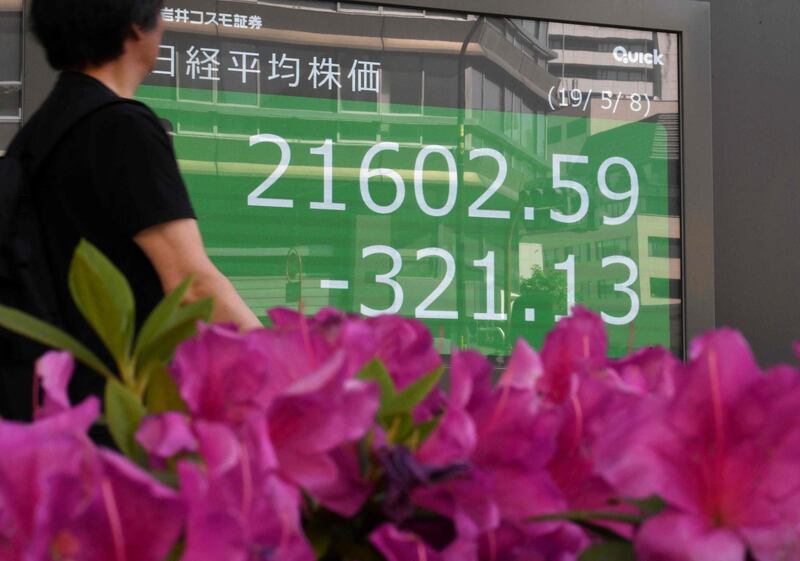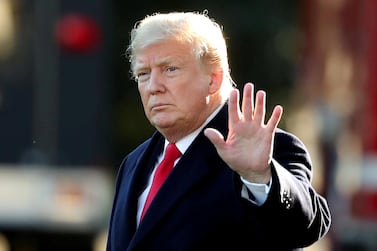Tokyo stocks opened sharply lower on Tuesday, extending losses on global markets as the US-China trade war escalated and pushed the yen higher.
The benchmark Nikkei 225 index lost 1.78 per cent or 377.19 points to 20,814.09 in early trade, while the broader Topix index was down 1.77 per cent, or 27.34 points, at 1,513.80.
Beijing said Monday it would raise tariffs on $60 billion worth of US goods from June 1, in retaliation for the latest round of US tariff hikes and Washington's plans to target almost all Chinese imports.
On Wall Street, the Dow ended down 2.4 per cent at 25,324.99, battered by China's decision.
Following the falls in New York, "Japanese shares are seen dominated by sell orders, and appreciation of the yen is also weighing on the upside" of share prices, Yoshihiro Ito, chief strategist at Okasan Online Securities, said in a commentary.
Investors are "worried that the intensifying trade war will have a negative impact on the global economy", he said.
The dollar traded at ¥109.17 in early Asian trade, down from ¥109.30 in New York and ¥109.70 in Tokyo on Monday.
In Tokyo, China-linked shares were among the losers, with industrial robot manufacturer Fanuc trading down 1.52 per cent at ¥18,755 and electronic parts maker Rohm down 4.29 per cent at ¥6,910.
Sharp dived 4 per cent to ¥1,006 and chip-testing equipment maker Advantest dropped 2.09 per cent to ¥2,799.
SoftBank Group plummeted 5.58 per cent to ¥9,886 again after Uber continued to slide after a disappointing IPO. SoftBank Group has a 16 per cent stake in the ride-hailing firm.







